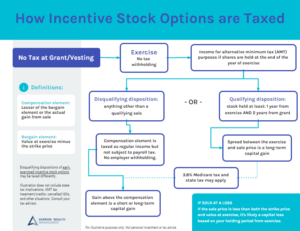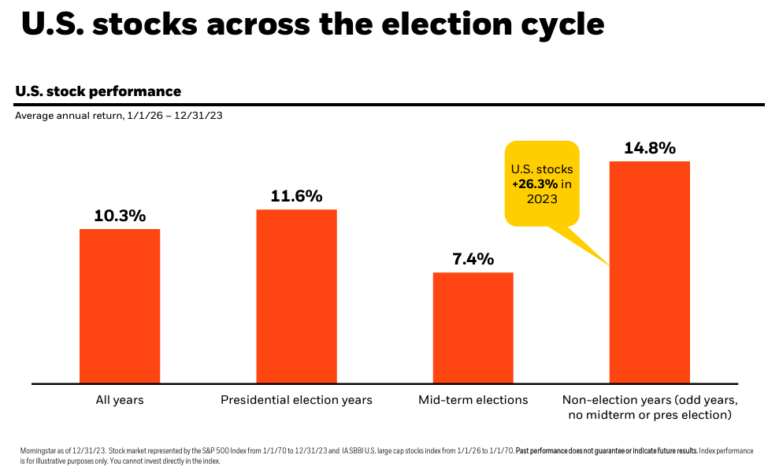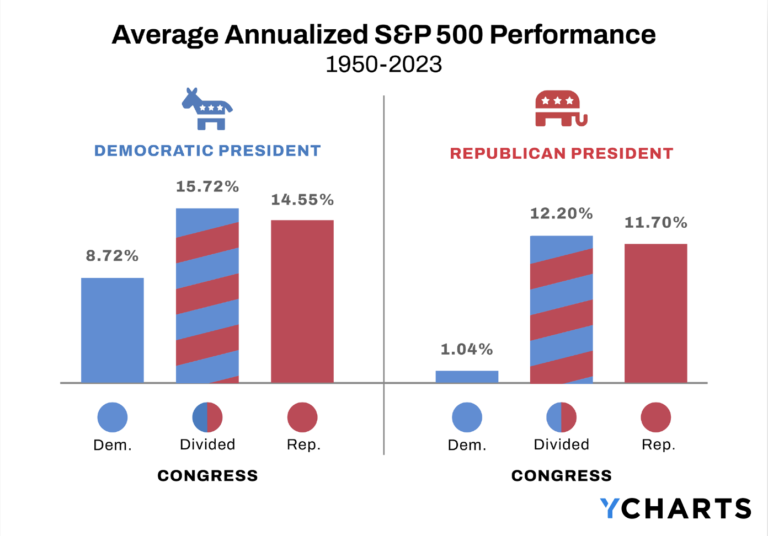What happens to your stock when a company is bought out?
If your company is getting acquired, you’ll want to understand what can happen to your vested and unvested stock options or unvested restricted stock units after a company is bought out. Here are a few possible outcomes for stock options after a merger, acquisition, or sale of a company.
FAQ
Answers to the most frequently asked questions in a buyout. Keep scrolling for more detailed answers.
What happens to stock when a company is bought?
When a company is bought out, the most typical outcome is for shareholders of the acquired company to receive stock in the new company, cash in exchange for your stock, or a combination of the two. Employees of the company usually become shareholders after exercising vested stock options or after restricted stock units vest.
What happens to vested stock options when a company is acquired?
Typically, when a company is bought out, the buyer will either cash out vested unexercised stock options, substitute the grant with shares of their stock, or cancel the grant.
What happens to unvested stock options or RSUs when a company is bought out?
In the best-case scenario after an acquisition, vesting is accelerated and your unvested options or restricted stock units are treated just like regular shareholders. When that doesn’t happen, the acquiring company most typically will assume/substitute unvested shares or cancel them.
Does an acquisition make stock options and unvested RSUs vest?
Yes, an acquisition can accelerate the vesting of stock options and restricted stock units. When that happens, the vested stock is often eligible for the same treatment as other shareholders (cash in exchange for stock, replace stock of the acquired company with the acquirer, etc.).
What happens to vested stock options when a company is acquired?
Vested shares means you’ve earned the right to buy the shares or receive cash instead of stock – assuming your options are still worth something.
So what happens to your vested stock options when a company is bought? Typically, when a company is bought out, the buyer will either cash out vested stock options, substitute the grant with shares of their stock, or cancel the grant.
1. Cash out your options or awards
The actual amount you could receive will likely depend on your current exercise/strike price, the new price per share, or any other payment terms negotiated by the firms. But the effect will be the same: to liquidate your equity position.
Planning note: If you have vested incentive stock options, you’ll want to consider the pros and cons of exercising before the deal closes. When unexercised ISOs are cashed out at closing, it’s considered a cancellation of stock options for tax purposes, not a disqualifying disposition. This is important, as the former will be subject to payroll tax. Exercising shortly before the deal closes can prevent this from happening.
When Should You Exercise Stock Options?
The downside is that the deal may not close. Or if delayed, holding incentive stock options through the end of the year can trigger the alternative minimum tax (AMT). Should the deal not go through, you may be left with a large tax bill and no liquidity to pay it. Speak with your financial and tax advisor before making a decision.
2. Assume or substitute your stock options
The new company could also assume the value of your vested options/awards or substitute them with their own stock. Both ways should allow you to continue to hold equity awards or opt to exercise.
3. Cancel underwater vested grants
Certain types of equity compensation can become ‘underwater,’ meaning the current market value is less than the strike or exercise price. The exercise or strike price is what you’d pay to buy the stock or exercise your award. Incentive stock options, stock appreciation rights, and non-qualified stock options are common examples.
If your grant is underwater, the acquiring company may not want to be so generous, as even vested shares are technically worthless. Employees may be given a nominal payment by the acquiring firm in exchange for cancelling the stock grant. Restricted stock units can’t go underwater since they are given to employees.
Depending on your equity holdings, your grants might not all receive the same treatment. Meaning, some of your vested grants may be cashed out and others cancelled.

Here’s What You Should Do If Your Company Is Being Sold
What Happens to Stock Options if I Leave the Company?
What happens to unvested stock options or RSUs in an acquisition?
Investors with unvested stock options or RSUs are in a more difficult position as they haven’t yet earned the shares.
In the best-case scenario after an acquisition, vesting is accelerated and your unvested shares are treated just like regular shareholders.
When that doesn’t happen, the acquiring company most typically will assume/substitute unvested shares or cancel them.
1. Cancel unvested grants (underwater or not)
With unvested stock, since you haven’t officially “earned” the shares, the acquiring company could potentially cancel the outstanding unvested grants. Some common financial reasons include concerns about diluting existing shareholders or the company couldn’t raise enough cash through new debt issues to accelerate unvested grants.
Depending on your strike price, it may be hard to tell whether your vested or unvested grant would be underwater when the acquisition is complete, depending on the shareholder payout or other specific terms indicated in the agreement. Unvested stock options that are underwater are at the most risk of being cancelled without a pay out.
2. Accelerate your vesting, partially or in full
The acquiring company can also accelerate the vesting of options or awards, choosing to pay cash or shares, in exchange for the cancellation of outstanding grants. Acceleration of vesting may not be available uniformly across equity types or grants.
For example, the terms may provide a new vesting schedule, where unvested grants will receive accelerated vesting based on the original schedule, if the deal hadn’t happened. The acquiring company could cancel grants that wouldn’t have vested for a while, with or without compensation. The new company could also partially vest shares or continue the stock plan.
This type of arrangement could apply universally to all employee stock offered in the incentive plan, or only to certain types.
Planning note: If you have incentive stock options, accelerated vesting could mean exceeding the $100,000 annual limit for ISOs. The value is based on the fair market value at grant. Any amount in excess of $100,000 will be treated as a non-qualified stock option. Speak with your financial and tax advisor to discuss your situation.
3. Assume, substitute, or cash out unvested options
The new company could assume your current unvested stock options or RSUs or substitute them. The same goes for vested options. You’d likely still have to wait to buy shares or receive cash, but could at least retain your unvested shares.
In the Takeda acquisition of Shire, awards were converted on a predetermined valuation outlined in the terms of the deal. Shares were paid out in cash according to the original vesting schedule, as long as the employee stayed with the company.
If the acquiring company is private but has plans for an IPO, additional planning opportunities may be available to you. More on what can happen to stock options after an IPO here.
The type of equity impacts the treatment of stock after a company is bought out
What happens to your stock after an acquisition depends (in part) on what type of equity compensation you have. There are many different types of equity plans a company can use to incentivize staff. It is also not uncommon for employees to receive multiple different types of equity-based compensation at once.
Other common forms of equity compensation include restricted stock units (RSUs), restricted stock awards, and stock appreciation rights (SARs). In many cases, shares are given, you don’t buy them.
Does an acquisition make stock options vest? Perhaps, but unfortunately, the answer is going to be specific to the deal and your agreement. Other factors that matter include the terms of the deal (cash vs stock buy out) and how the purchase price impacts the value of the shares. Another factor? The value of the acquiring company’s stock relative to the company being acquired.
Work with a Stock Option Advisor
You won’t know what happens to your stock options until the sale is final
In all likelihood, if you work for a public company, there will be considerable lag time between when you first learn of the deal and when it’s approved by shareholders, perhaps regulatory agencies, and then finally completed. Until the terms of the merger or acquisition are finalized, employees won’t have answers to the lingering questions about what will happen to their stock compensation.
Once the guidance is released, it may still take more time to work through what exactly it means for you. Particularly if you have multiple forms of equity compensation with different vesting schedules, strike prices, etc., it will take time to get through the legalese.
Even with the terms of the buyout, you may still have to wait until the deal is final to calculate your potential payout, if the stock prices in the days or weeks before the close play a role in the calculation. As you wait, try to address some of the other personal financial challenges associated with M&A activity.
Stock option and equity compensation advisors
What will happen to your stock options or equity compensation depends on how the firms structure the deal. As you can see, there are complex financial, legal, and retention issues at play. The above article is a simplified summary and not an exhaustive discussion of what could happen to shares following an acquisition, including potential planning opportunities and tax implications.
Since there are many different types of potential outcomes and considerations for professionals when a company is sold, it’s important to review your specific situation with a financial advisor. To discuss your personal situation, please schedule a phone consultation today.
Nationally Recognized Wealth Advisor in Stock Compensation
Selection of media appearances by Kristin McKenna CFP®, President of Darrow Wealth Management and a nationally recognized specialist in employee stock options and equity compensation.
Publications above reflect media organizations that have quoted and/or published articles authored by Kristin McKenna and should not be misconstrued as a current or past endorsement of Kristin McKenna, Darrow Wealth Management, or any of its advisors. Please refer to the media page for more information and links to published works.
Darrow Wealth Management offers Private Wealth and Asset Management to individuals and families. This article is not a substitute for personalized tax or legal advice from a CPA, tax advisor, or attorney.
Last reviewed February 2024













